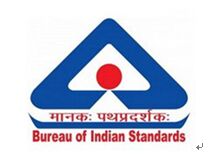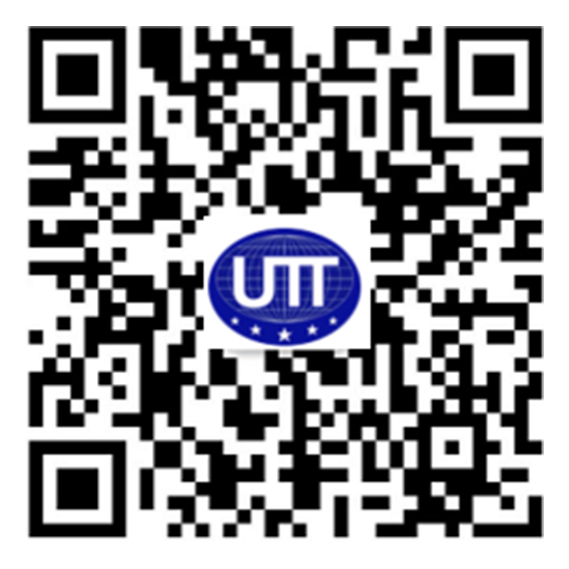Address:10F, No. 153, zone 1, Yucui community, Longhua street, Longhua District, Shenzhen
Phone:service@utt-cert.com
Email:service@utt-cert.com
Fax:0755-33146812
Service Hotline:
17665464625
BIS certification
BIS certification
What is BIS certification

BIS is a third-party certification body. Products certified by it will bear the ISI label, which has a wide influence in India and neighboring countries. It has a good reputation and is a reliable guarantee for product quality. Once the product is marked with the "ISI logo", it means that it complies with the relevant Indian standards, and consumers can buy it with confidence.
In order to unify product supervision standards and requirements and ensure product quality and safety, India began to implement a product certification system in 1955. According to The BIS Act (1986), India’s product certification implements the principle of voluntary certification. However, considering the factors of public health and safety and mass consumption, the Indian government has implemented specific laws and regulations on specific products. Mandatory certification. Designed to provide end-consumers with quality-assured, safe and reliable products. All products included in the compulsory certification must obtain a product certification in accordance with Indian product standards before entering the market. Therefore, it is necessary for manufacturers that want to enter the Indian market to have an understanding of India’s product certification system
According to The BIS Act (1986), the Indian Bureau of Standards (BIS) is the competent authority for standardization and certification in India. It is specifically responsible for product certification. It is also the only product certification body in India and was officially established in 1987. In order to replace the Indian Institute of Standards established in 1946. The Bureau of Indian Standards (BIS) is a member of the Ministry of Consumer Affairs and Public Distribution. Although it is a corporate body, it performs government functions. Its main tasks are to formulate and implement national standards; implement conformity assessment systems; Standardization activities. The Indian Bureau of Standards (BIS) is a financially independent organization that certifies income as its main source of income. There are 5 regional offices and 19 branch offices under BIS. The regional bureau supervision corresponds to the branch bureau. The eight laboratories to which BIS belongs and some independent laboratories are responsible for the inspection of samples taken during the product certification process. These laboratories are implemented in accordance with ISO/IEC17025:1999.
India BIS certification LOGO Since BIS's predecessor, the Indian Standards Association began product certification in 1955, Indian product certification has been 50 years old. At present, BIS has issued more than 30,000 product certification certificates. After obtaining the certificate, the manufacturer is allowed to attach ISI labels. The certification covers almost every industrial field such as agricultural products, textiles, and electronics.
BIS certified product range
Textile
2. Chemicals and pesticides
3. Rubber and plastic products
4. Cement and concrete products
5. Building materials
6. Pumping, irrigation, drainage and sewage treatment devices
7. Pipes and devices of the water supply system
8. Base metal and processed metal products
9. Machines and equipment
10. Electronic appliances and optical equipment
11. Auto parts
12. Agricultural products, food and tobacco
13. Black tea and drinks
14. Packaging drinking water and natural mineral water
15. Leather products
16. Wood products
17. Pulp products
18. Test equipment
BIS certified materials
1. Application Form
2. Proof that there is an appointment form for an agent in India, or a certificate certifying the manufacturer’s India office, and the Reserve Bank of India’s permission
3. Documents proving the establishment of the company, such as a registration certificate
4. Process flow chart, illustrating the whole process of product manufacturing (from raw materials to finished products)
5. Quality control system (such as quality manual, quality control plan, test arrangement, etc.)
6. Provide other details of product or system certification
7. Provide detailed information of components or raw materials used for product manufacturing before certification
8. List of manufacturing machines
9. Test equipment list during the test
10. Product design drawing
11. Details of qualifications and experience of laboratory supervisors, technical and QC staff
12. Test report from an accredited independent laboratory or the factory's own laboratory
13. Schematic diagram of the layout of the plant, which can clearly show the main production machines, laboratories, etc.
14. Schematic diagram of traffic near the factory, schematic diagram from the nearest airport or train station to the factory, and detailed instructions from India to the factory
15. Bill of Exchange Receipt
Certification process
1. Apply. Foreign manufacturers who want to obtain BIS certification generally need to use special application forms and prepare relevant documents to apply to BIS New Delhi headquarters.
2. Record. BIS reviews the application documents and materials submitted by the applicant, and records the application if the procedures are complete. Applicants must pay the corresponding processing fee.
3. Initial factory inspection. BIS will assign an official group of no more than 2 persons to the factory for inspection. Applicants must bear the expenses such as travel and visa expenses of the official delegation to the factory for inspection and the corresponding inspection fees;
4. Issue the certificate. If the initial inspection and test results are qualified, and after applying for approval to implement the BIS-approved inspection and testing program and paying the BIS mark fee, a certificate may be issued to the applicant. The certificate is valid for 1 year. After the certificate is granted, the licensee must pay the annual identification fee to remember the certificate annual fee.
Post-certification supervision. BIS supervises the quality of its certified products through routine supervision of the ruling party and unannounced inspection and testing of samples on factories and markets. If the periodic inspection, the samples taken from the factory or market meet the requirements after the factory inspection and independent test results, the certificate is updated. The executor submits an application for renewal to BIS by submitting the specified form, and the certificate renewal fee is 500 rupees. The executor shall also bear the cost of sample inspection.
Certification considerations
1. The BIS certification is valid for 1 year, and applicants must pay an annual fee. You can apply for an extension before the expiration. At this time, you need to submit an extension application and pay the application fee and annual fee.
2. BIS accepts CB reports issued by valid agencies.
3. If the applicant meets the following conditions, certification will be faster.
a. Fill in the factory address in the application form with the manufacturing plant
b. The factory has test equipment that complies with relevant Indian standards
c. The product officially meets the requirements of relevant Indian standards
- Prev:Japan Telec certification
- Next:none
 CHINESE
CHINESE

